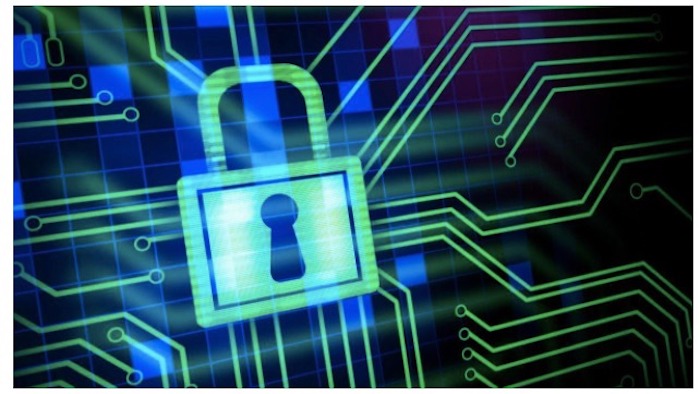It’s great that you can get your stimulus check abroad, but is it actually safe to do that?
Not really – doing this online leaves you open to tons of risks: non-existent network encryption, weak WiFi encryption that can be exploited by hackers, or even fake WiFi networks ran by hackers.
Considering all those dangers, what kind of security measures should you take?
Well, the most obvious reason is to use a VPN. It’s the best way to securely cash your check abroad.
Why?
We’ll show you in this guide. Also, we’ll answer many relevant questions about using a VPN in general.

So Should You Use a VPN to Get Your Stimulus Check?
Yes – definitely! A VPN will secure your data against all cyber threats. It does that by encrypting your Internet traffic. That means the data becomes completely unreadable. If anyone spies on it, they won’t understand a thing.
For example, instead of someone seeing you send connection requests to the platform you use to get your stimulus check, they’ll just see random strings of numbers and letters like this one: FHJgh524jkaFuhjrg2.
VPNs also encrypt your data end-to-end. Translated, that means only the VPN’s app and server can decrypt your data.
Other Ways VPNs Secure Your Data
Besides encrypting your Internet traffic, VPNs also hide your IP address. Anyone or anything you communicate with on the web will only see the VPN’s IP address.
Why does that matter?
Because your IP reveals a lot of personal data about you: the country and city you live in, your ISP, and even your ZIP code. That’s the kind of data cybercriminals can use to target you with phishing attacks.
Furthermore, some VPNs also offer ad blocking features. Obviously, they stop ads from loading, which is nice because it improves browser performance. But that’s not all – VPN ad blockers can also block connections to malicious websites. So hackers can’t use MITM attacks to send your traffic to fake sites.
Other Perks of Using a VPN
• By hiding your geo-location, VPNs help you bypass geo-blocking. You can watch any content you want on sites like Netflix, Amazon Prime, and Crunchyroll.
• Because they encrypt your traffic, ISPs won’t be able to see what specific online service you use. Without that information, they won’t be able to throttle your bandwidth when you use too much data (like when you binge shows for hours on end).
• VPNs stop advertisers from tracking your online habits and using them to spam you with personalized ads.
• VPNs can improve your gaming experience by reducing ping and lag, protecting you from DDoS attacks, and bypassing IP bans.
• By hiding your IP, VPNs help you get better prices on things like plane tickets, video games, car rentals, and bookings.
• VPNs bypass restrictive firewalls, meaning you can use censored sites in restrictive countries (China, Iran, Russia, etc.) and on school and workplace networks.
How to Use a VPN to Secure Your Data
If you never used a VPN or saw one in action before, you might be a bit intimidated by them. Well, VPNs are actually very simple to use.
First, you subscribe to a secure VPN (like ExpressVPN or NordVPN). Then, you download and install the VPN provider’s app.
When you’re done, you run the VPN app and use it to connect to a VPN server. From then on, all your traffic will be secured by the VPN on the web.
Must-Have VPN Security Features
It’s not enough to just use any VPN – it also has to offer great security to keep your data safe. To do that, it should offer:
• No-logs policy – VPNs should never monitor your traffic. Ideally, their no-logs policy should be independently verified.
• Secure protocols – You should be able to use strong protocols like OpenVPN, WireGuard, and IKEv2/IPSec. PPTP is a red flag because it’s not safe at all.
• Perfect forward secrecy – PFS is a security feature that changes the encryption keys during a VPN session. That way, even if a hacker were to steal one key (unlikely to happen), they wouldn’t be able to compromise all your traffic.
• Ad blockers – Like we already said, VPN ad blockers are useful because they protect you from phishing sites.
• Kill switch – This feature shuts down Internet access when the VPN connection drops. It’s useful because it protects you from traffic leaks.
Can You Use a Free VPN?
No, we don’t recommend using free VPNs to get your stimulus check. They’re not secure at all. In fact, many free VPNs are missing most of the important security features we previously discussed.
Also, free VPNs might log and sell your traffic, expose you to tons of ads, and even infect your device with malware.
And that’s not all! Free VPNs have notoriously slow speeds – in our tests, they’re always 50-60% slower than paid VPNs. Plus, free VPNs limit how much data you can use each month (or day), have very buggy apps, and don’t offer good support at all.
There are some reliable free VPNs, though – but they’re all backed by paid plans. ProtonVPN is such an example. It has excellent security, and it’s one of the only free VPNs that offer unlimited data.
But paid VPNs aren’t even that expensive most of the time! Most top VPNs offer very cheap prices if you get the long-term plans. What’s more, they also have great money-back guarantees – usually for 30 days. Some providers even go the extra mile and offer 45-day money-back guarantees!
What Other Ways Can You Securely Get Your Stimulus Check Online?
Know other security measures people should take? Please tell us about them in the comments.
Oh, and if you already use a VPN, please let us know which one is your favorite.



